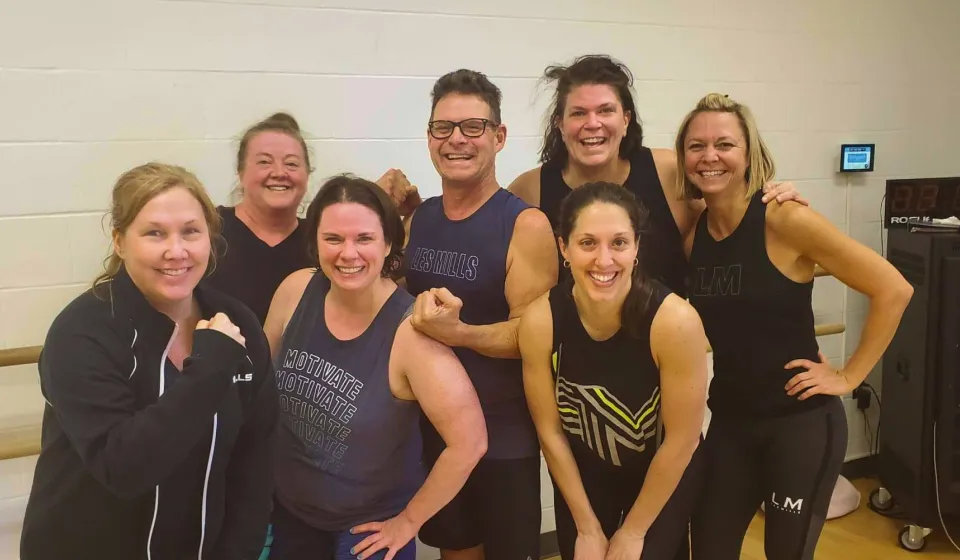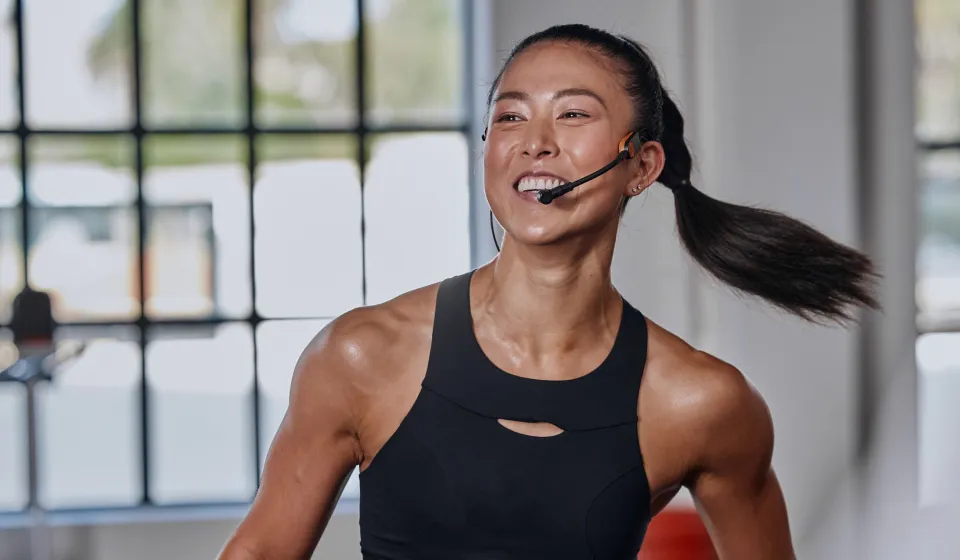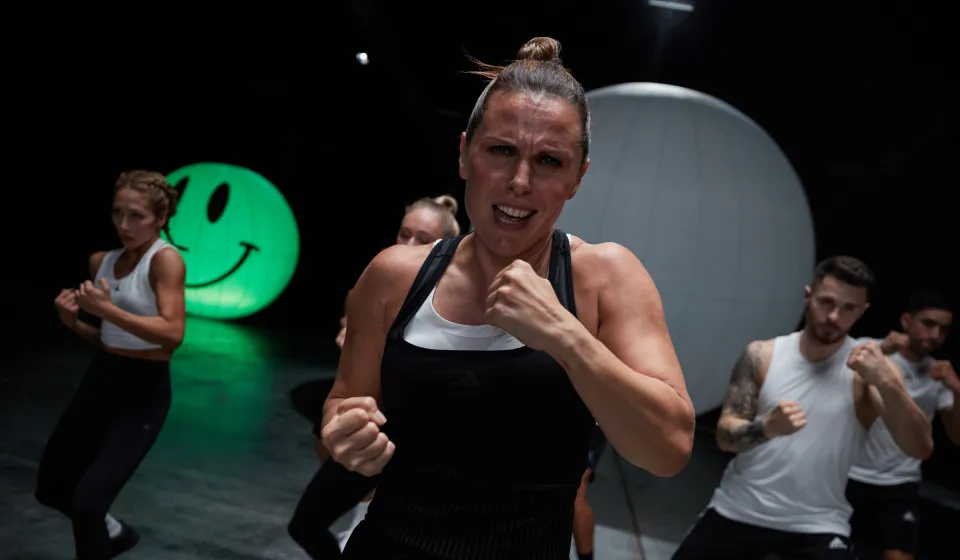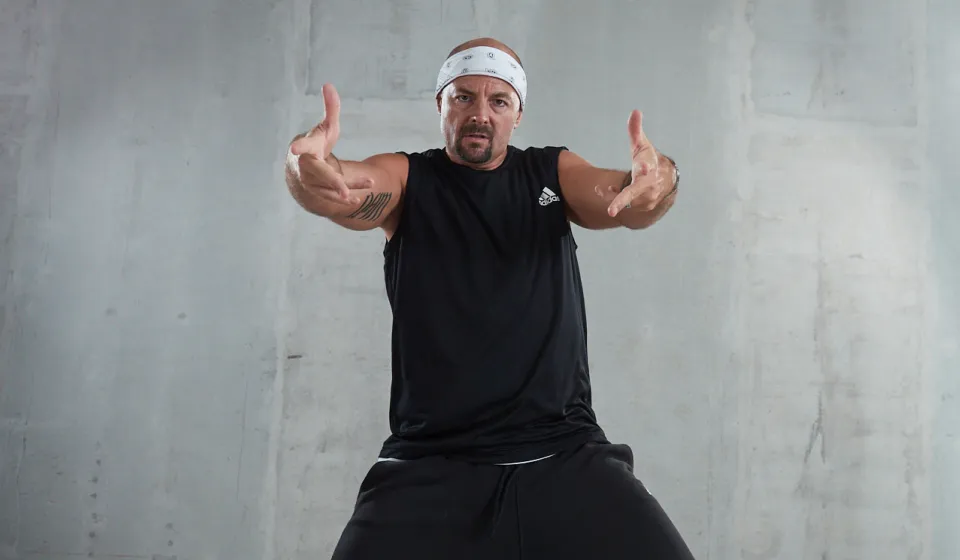Workouts for the mind

Les Mills Presenters reveal their go-to programs for a mental health boost, and how science backs them up.
Lifting weights to lighten the mental load
When Ben Main feels like everything is going off track, he knows it’s time to refocus his mindset. “I’m kind of superstitious, so if I know I can change things, then I’m gonna make it happen!” he says. For Ben, a good workout kickstarts the momentum he needs to shift his mindset from one extreme to the other.
In these moments, he turns to strength training – specifically, an upper-body German volume training session. “Ten sets of 10 reps. I don’t have time to think about anything else except nailing 100 reps on the bench press and then 100 lat pulldowns. It’s a challenge for both body and mind. Every rep is a fight, and completing it gives me the confidence to attack the day.”
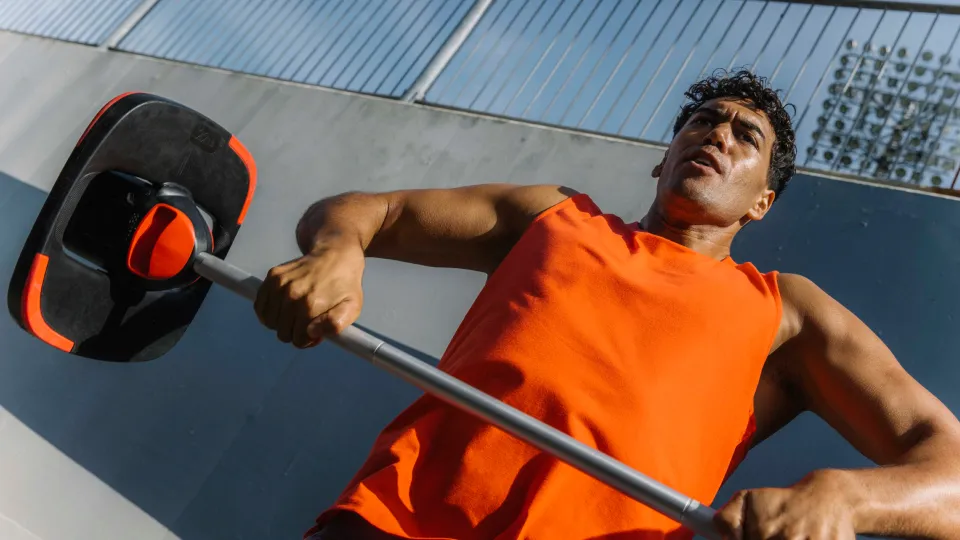
SCIENCE SAYS:
Research backs what many of us feel: weightlifting is a proven way to ease stress and anxiety, with benefits on par with antidepressants or psychotherapy. The magic isn’t just in building muscle – it’s the sense of accomplishment and self-efficacy that come from lifting weights. If you teach cardio-based classes, be sure to encourage your participants to explore squats, lunges, and planks, which strengthen the core, promote better posture, and have been linked to improved mood.
Finding balance
Dannielle Lally has spent years navigating mental health challenges and honing self-awareness.
“I recognize that I’m highly emotional – and I’m a Pisces too, so that’s part of the mix!” she laughs. “When I find myself crying over small things – like spilling coffee – or pulling away from loved ones, I know it’s time to reset.”
Her go-to for a mental health pick-me-up? BODYBALANCE™. “It’s restorative, inclusive, and connects to your wairua (spirit). The coaching lets you ease in – you don’t have to be going ‘hundy guns’ like in other workouts. I love how it invites you to tune in and focus on your breath.”
When she needs an extra boost, she transforms her lounge into a mini yoga studio – candles, incense, lemon water, and her favourite yoga tights create the perfect mood-booster space. “Halfway through the class, I feel this wave of positive energy. At the end, I feel validated and more confident.”

SCIENCE SAYS:
BODYBALANCE fuses yoga, Pilates and Tai Chi to build strength, improve flexibility, and create calm. Studies show it can reduce anxiety and tension while improving sleep and motivation. One reason is its impact on heart rate variability (HRV) – a marker of your body’s ability to shift from stress to relaxation. Improving HRV through mind-body exercise is a powerful way to build mental resilience.
Flow and focus to calm anxiety
Otto Prodan has been managing anxiety since childhood. “When it hits, I get stuck in a loop of worries and ‘what ifs’, and my body gets tense,” he explains. Yoga has become his tool to break that cycle. “It’s a space to slow down, breathe, and physically release stress.”
He loves how yoga brings him fully into the present moment. “It feels like nothing else matters. Afterwards, I come away with new ideas and a sense of calm. My breath and heart rate feel steady, and I’m clearer in my thinking.”
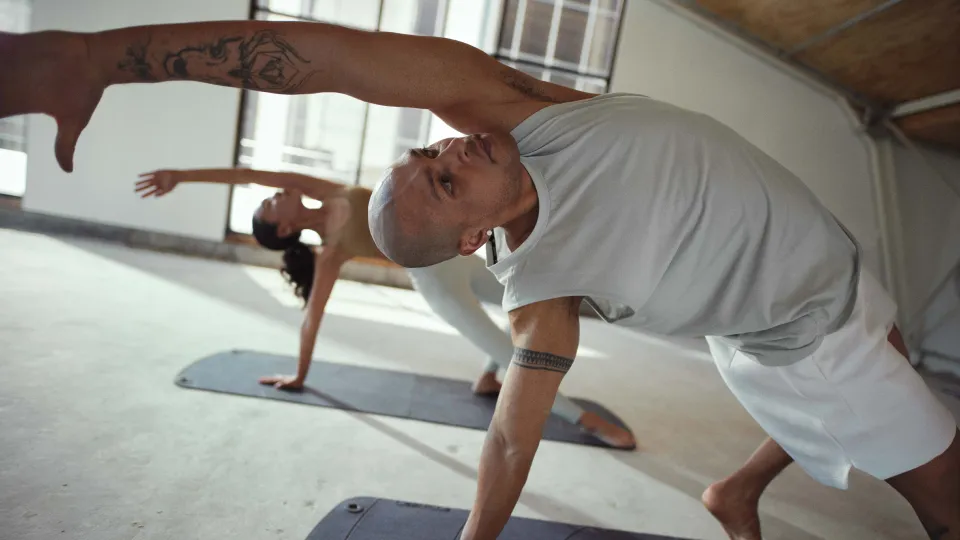
SCIENCE SAYS:
Yoga is a trusted ally for mental health, shown to regulate the autonomic nervous system and the stress response axis. These shifts support better decision-making and emotional regulation.
Some studies even suggest yoga’s effects on depression can be as strong as medication, group therapy, or massage. As Instructors, highlighting these holistic benefits can inspire your participants to approach yoga as an essential part of their wellness toolkit.
High-intensity for happiness
Summer Bradley finds her mental wellbeing slipping when she feels overwhelmed by a busy mind. “When I’m stressed, I need a mental state shift. That’s where a workout comes in – and I usually go for extremes: LES MILLS GRIT™ Cardio or a good stretch session.”
For her, LES MILLS GRIT Cardio is pure intensity – a chance to test limits and find satisfaction in doing something hard. “When I push beyond what I thought I could, that mindset carries through the rest of my day.” On the flip side, when she’s seeking calm, she turns to stretching before bed. “It brings up emotions, and releasing my body has the same effect on my mind.”
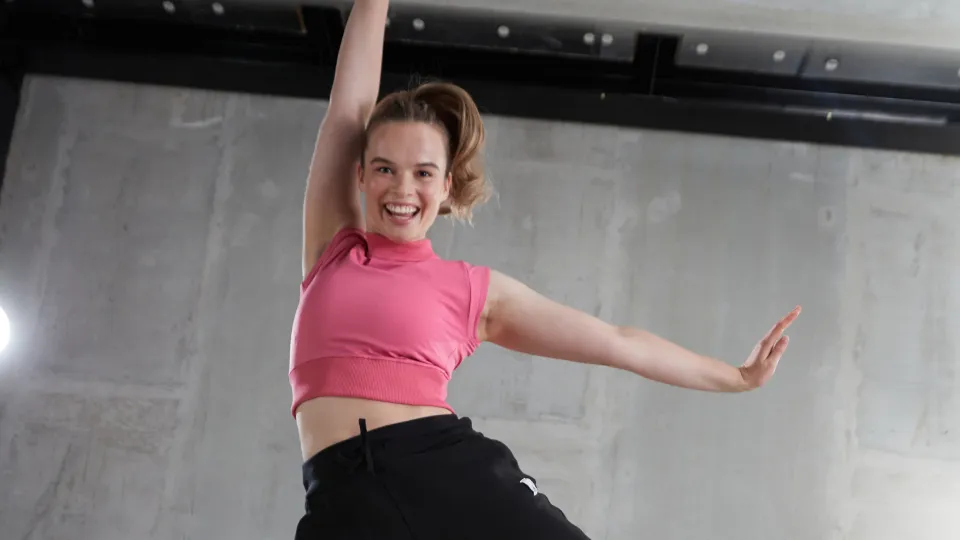
SCIENCE SAYS:
HIIT like LES MILLS GRIT isn’t just powerful for fitness – it’s also strongly linked to reduced depression and moderate, but reliable, relief for anxiety. It’s a potent way to boost mental resilience and help participants find that all-important ‘I can do this’ mindset.
Low-impact for a big boost
Kaylah-Blayr Fitzsimons-Nu’u knows the early signs of mental fatigue – low energy, less motivation, and a need to retreat. When those signs show up, she goes for low-impact movement to restore balance.
“BODYBALANCE helps me calm my mind and ease tension in my body,” she says. “When I have a little more energy, I love LES MILLS SHAPES™ – it’s low impact, but I get a great whole-body workout without feeling mentally drained.”
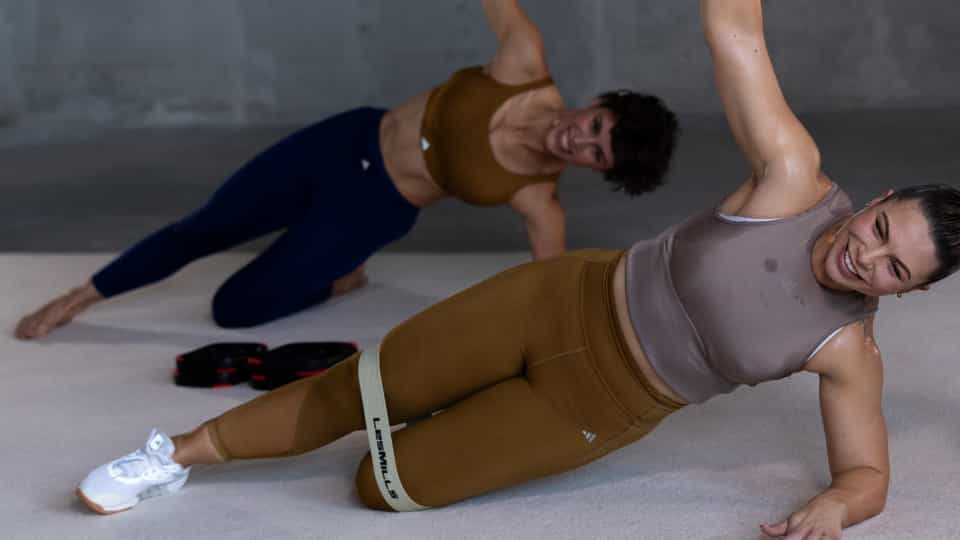
SCIENCE SAYS:
LES MILLS SHAPES and other Pilates-inspired low-impact workouts are proven to reduce stress and lift mood. The secret lies in breathwork and controlled movement, which lowers cortisol and fuels the release of feel-good endorphins. For Instructors, remember: even low-impact movement can have a huge impact on your participants’ mental wellbeing.
You might also be interested in:
How much exercise do you need for mental health?

